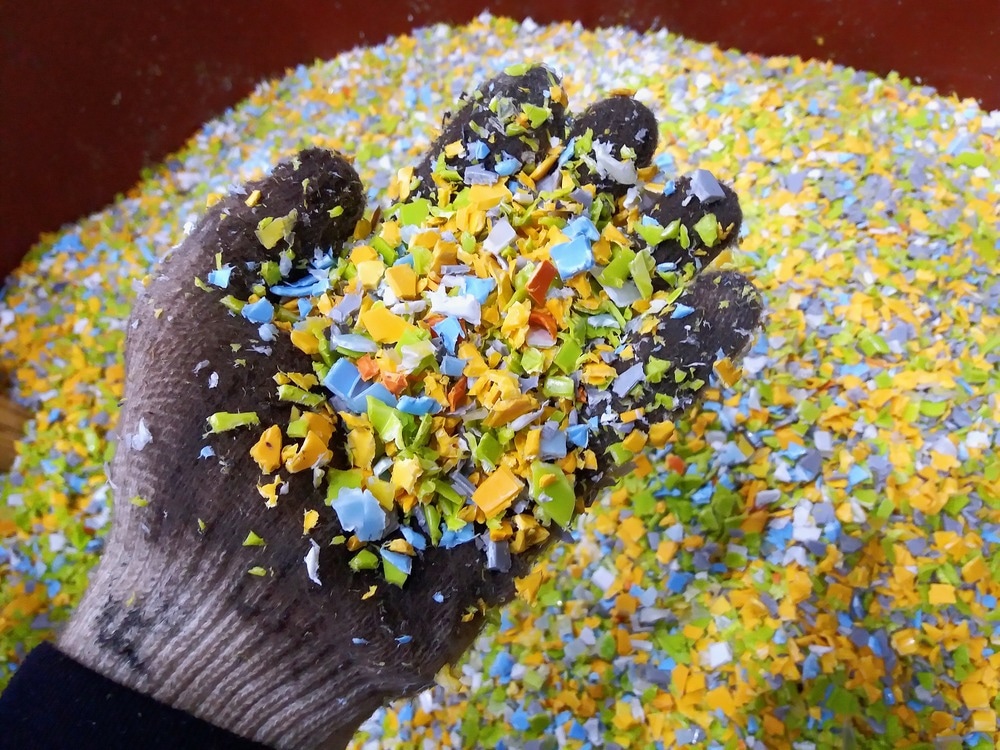Dec 8 2022Reviewed by Alex Smith
A circular bioeconomy has the potential to significantly reduce the climate, pollution, and resource consumption implications of the fast-growing plastic sector. Under existing practices, global plastic manufacturing will almost certainly triple by 2100.

Image Credit: suteelak phundang/Shutterstock.com
Today, the plastics industry accounts for over 5 % of total greenhouse gas emissions. By delivering emissions-free electricity to a cyclical, bio-based plastic industry and eliminating waste incineration, the sector might grow to become a type of carbon sink. That is the finding of a recent paper in Nature by scientists from Utrecht University, the Netherlands Environmental Assessment Agency (PBL), the Netherlands Association for Sustainable Energy (NVDE), and the Netherlands Organisation for Applied Scientific Research (TNO).
None of the models used in the Intergovernmental Panel on Climate Change (IPCC) reports have gone into detail about the plastic industry. As a result, the researchers created a new model to evaluate four scenarios for the global plastics industry.
These findings demonstrated that a high price for greenhouse gas emissions is insufficient to motivate the plastics industry to transition from fossil feedstocks to bio-based raw materials and a circular economy. Climate policy may even encourage greater plastic landfilling because it reduces CO2 emissions and is less expensive than other garbage disposal methods.
The Limits of Circular Strategies
A scenario with additional policies aimed toward a circular plastic sector (including stricter criteria for product design and standardization of plastic varieties) would considerably boost the recycling of plastic trash, minimize resource consumption, and further cut the plastic sector’s CO2 emissions until 2050. It would also prevent large-scale disposal in landfills.
However, focusing entirely on circularity would limit additional emission reductions in the second half of the century, because plastic’s function in biogenic (and thus non-fossil) carbon storage is underutilized. Furthermore, there is insufficient plastic waste to supply the expanding plastic demand through recycling. As a result, a completely circular plastic sector is only achievable if plastic usage is reduced.
Carbon Storage by a Circular Bioeconomy
It is possible to achieve negative emissions through biogenic carbon storage in a circular plastics industry that uses bio-based raw materials. A combination of bio-based raw materials, emissions-free electricity, high-quality recycling, and waste incineration reductions might turn the sector into a carbon sink. By 2050, 13 % of the biomass used to generate electricity could be used as a raw material for plastics.
Plastics with longer service life, like building materials, account for the majority of the world’s plastic stock. Using bio-based raw resources to make these materials would result in net negative emissions. If all plastics made until 2100 were bio-based and had a lifespan of decades, if not centuries, humans could theoretically collect the equivalent of nine times the present annual energy-related greenhouse gas emissions.
Requirements for High-Quality Recycling
Enhanced waste collection and sorting systems, as well as circular product design, will be required to attain a high proportion of recycling. Furthermore, to maintain a steady supply of high-quality plastic, the industry will need to make increasing use of chemical recycling.
The impurities are eliminated during this process, resulting in superior raw materials for new plastics. Plastics are broken into particles for re-processing in mechanical recycling, lowering plastic quality and potentially leaving impurities, making mechanically recycled plastic inappropriate for uses like food packaging.
Journal Reference:
Stegmann, P., et al. (2022) Plastic futures and their CO2 emissions. Nature. doi.org/10.1038/s41586-022-05422-5.
Source: https://www.uu.nl/en